In what was an evening of robust discussion, as per Hellenic tradition, the non-for-profit organisation Greek Youth Generator (GYG) in association with Greece’s Consulate General in Melbourne hosted an event providing a comprehensive overview on the process of applying for Greek citizenship on Thursday 30 March.
“Hey Greece, where’s my passport?” as it was called, took place at the offices of the Consulate General in Melbourne to a positive reception from attendees, who lauded the forum for providing accurate and concise information on the process in an accessible atmosphere.
GYG vice president Peter Giasoumi introduced guest speaker Lukas Theodorou of Helco Consulting, who concisely guided attendees through the process from the most elemental to involved aspects.
Speaking with Neos Kosmos, Theodorou said that the event addressed many questions he’d received from clients in his line of work, as well as dispelling a number of misconceptions concerning citizenship.
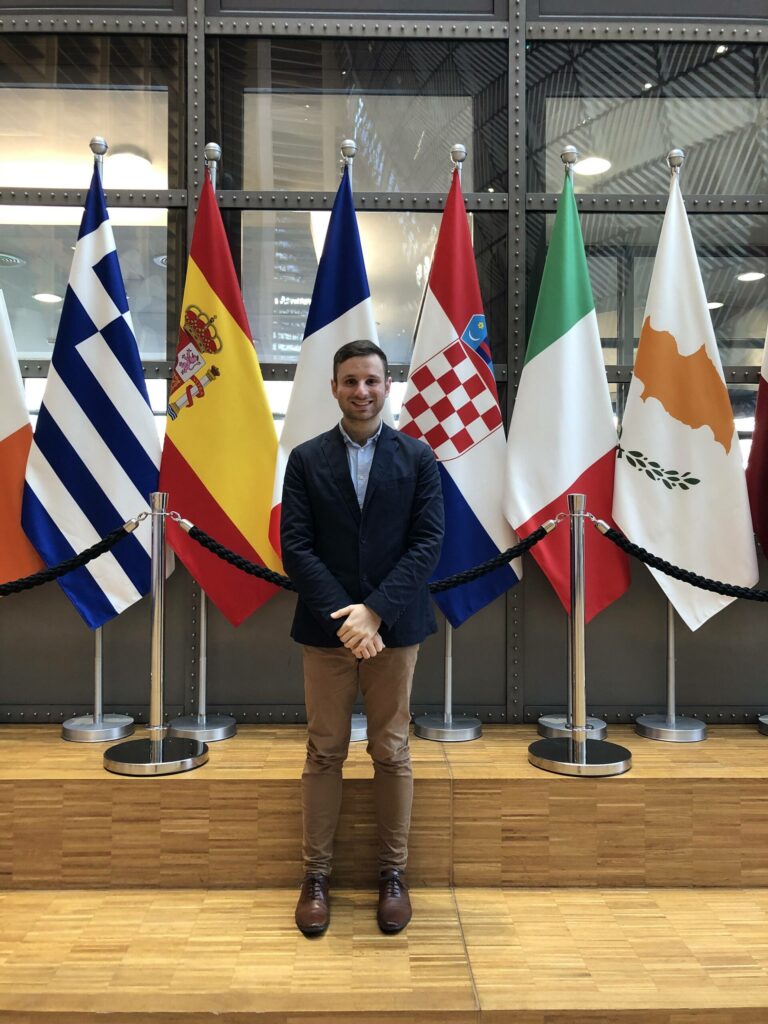
“Well I used to work at the Consulate in 2016 mentored by Katerina Douka who taught me all I know on the subject, a lot of clients have come to me through my consultancy in recent years with all sorts of questions,” he explains.
“There are a lot of common misconceptions around the process, a lot of us think we’re owed a passport for example, or can get one automatically when that just isn’t the case.”
“While Greek ancestry does entitle us to citizenship as stated in the Greek constitution, there are a number of caveats,” he said during his presentation.
Theodorou cited the various benefits of citizenship, including freedom of movement and the right to work in the EU, access to Greece’s public services, eligibility to vote in elections and the ability to purchase property in the country without the mandatory minimum investment for foreign nationals of 250,000 euros.
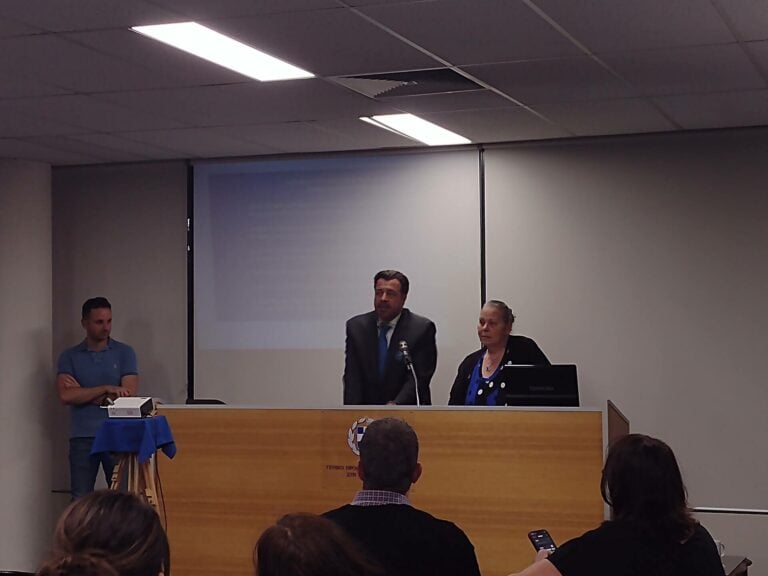
It should be noted that there are multiple means of acquiring Greek citizenship, those being by descent where at least one of a person’s parents are themselves citizens, by marriage to a Greek citizen, through investment and the most complicated of these, via naturalization.
For those seeking citizenship via descent, the process has been streamlined thanks to a new electronic system employed by the Consulate.
Those attending the event also had the opportunity to hear directly from representative of the Greek Consul in Melbourne, Katerina Douka, as well as the Consul General Emmanuel Kakavelakis.
Douka followed up Theodorou’s talk with an even more detailed look at the minutiae of the process, addressing the many circumstances which can have an impact on the process.
“It must be stressed that it’s vital to ensure that all documentation is correct before it’s handed over to our care,” she explained.
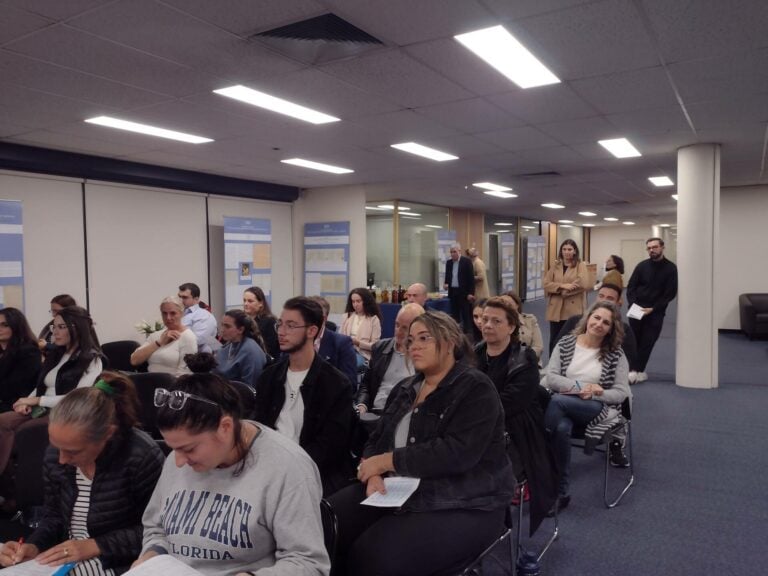
Persons seeking citizenship via descent are required to provide the Consulate with the following documents:
A valid Australian passport, birth certificate, parents’ marriage certificate, proof of a parent’s Greek citizenship and two passport sized photos.
Assuming these are provided to the Consulate without any discrepancies, an applicant can be granted citizenship and apply for a passport within a week of their appointment.
With some 65 people in attendance, attendees mingled in what was a jovial atmosphere before and after the speakers’ presentations to a backdrop of familiar Greek folk tunes, sharing their experiences with refreshments in hand.
Over the course of nearly one and a half hours, the speakers explained in clear detail the factors and circumstances to be considered as well as common impediments which arise in the process of receiving Greek citizenship.
Among those most common, they highlighted, are inconsistencies in spelling across various legal documents and the official registration of marriages and divorces with authorities in Greece.
The presentations also addressed the concerns of people with Greek heritage from territories formerly held by Italy, as well as those who hail from territories now part of Turkey, Egypt, Israel and Albania.
“Mistakes made by Australian public servants in the past when transferring names from Greek to Australian documents can and still do affect the aspirations of their descendants to acquire Greek citizenship,” Doukas said
“As far as the Greek state is concerned, Ioannis is Ioannis transliterated phonetically, not John.”
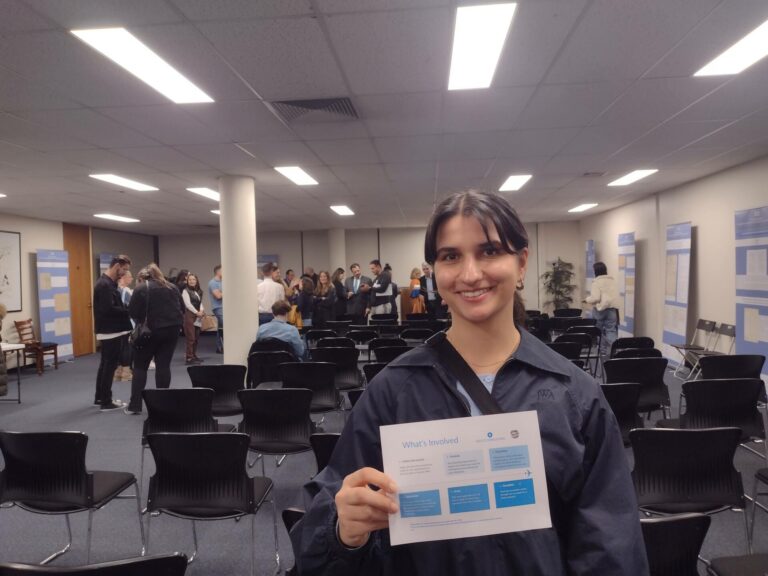
“Don’t be afraid to get in touch with the registry of births, deaths and marriages.”
“I wish you all the best, be proud to be Greeks,” she concluded.
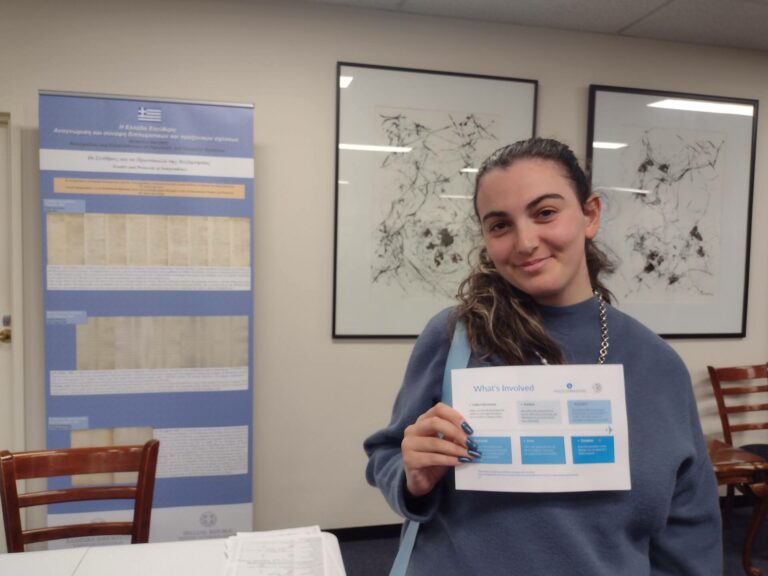
Neos Kosmos spoke with a number of attendees at Thursday night’s event, who explained their individual journeys on the road to attaining citizenship.
Christine Georgopoulos found out about the event through GYG’s Instagram page
“Tonight was really informative, I’d had a lot of difficulty trying to find this information online so I saw tonight as this kind of saving grace with everything you need to know in the one place.”
Larissa Barlotta came to the event because she wanted to receive her citizenship “to live and work in Greece.”
“This is my first time at the Consulate and I didn’t really have much of an idea about the process before tonight, of course I’ve still got a few more questions but on the whole, it was really comprehensive.”
Eliza and Alec Katsourakis told Neos Kosmos they’d been looking into the process for some time.
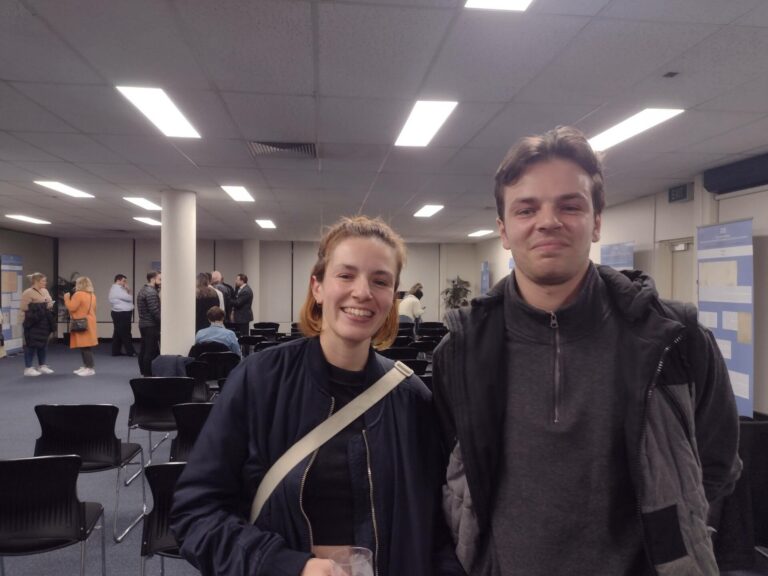
“We saw this event pop up through GYG’s page and were like ‘cool, let’s do it.’,” said Eliza.
Alec explained that he “Moved to New Zealand for three years in the middle of thinking about it which didn’t help, but now I’m back hopefully the process goes smoothly, and tonight was great to get an idea of how to go about it.”
George Lucas confirmed his suspicions that he may already be registered as a Greek citizen.
“I was of the understanding that I might already be a citizen as I was registered in Greece as a young boy, I even went to school there for a year.”
“I’m here because I wanted to find out how that might expedite the process for my daughter Zoe, and I’d also like a passport myself,” he said.
“All the speakers certainly seemed to understand the process very well, they’re the experts after all and I look forward to coming back with my documents and getting started.”
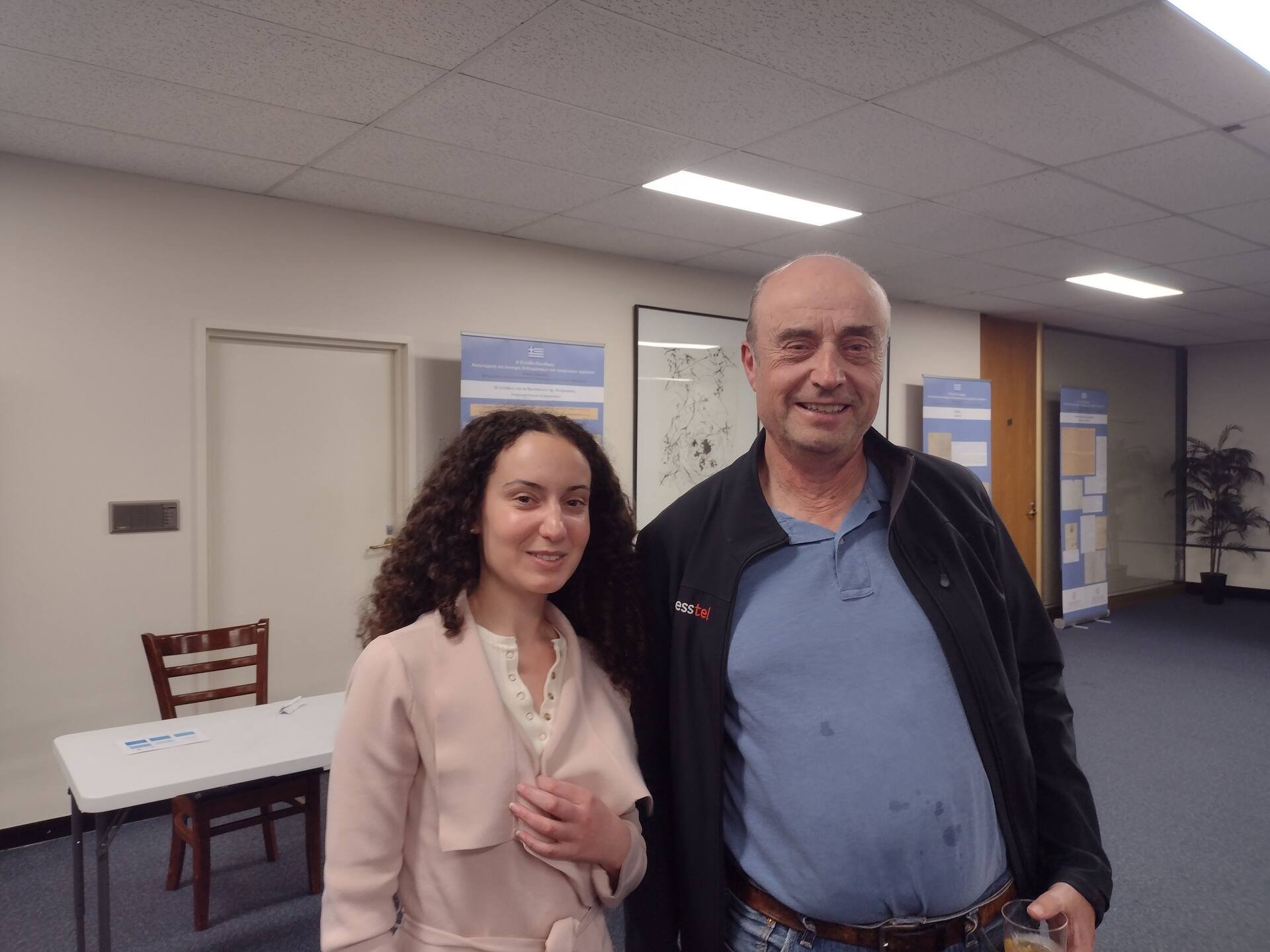
GYG’s secretary, Deoni Kladis, who is herself seeking citizenship, explained that the event was the culmination of “almost a year’s work.”
“I think we just really wanted to host this event to give people some really crucial information that’s harder to find through other avenues,” she told Neos Kosmos.
“A lot of people don’t really know where to start so we decided that starting this would be a really great way to let people of all ages know how to go about the process.”
“Being able to open up these doors for others is just so great.”
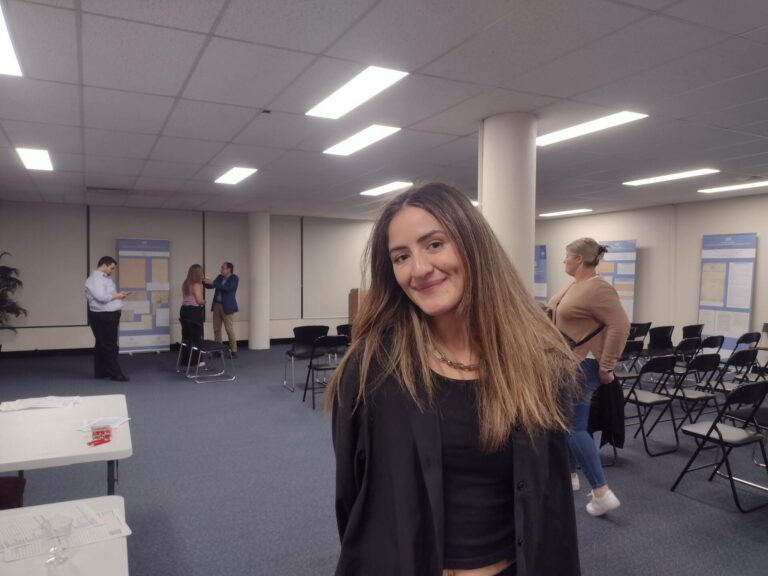
Concluding the presentations, the Consul General expressed his belief that “the main reason diaspora Greeks desire a passport is the sentimental value, and recognition of their heritage; which I believe is the most important reason.”
As for the fees associated with the process, he described them as “very friendly, they don’t come anywhere near the cost of acquiring Australian citizenship, for example.”
And on the issue of military service for male Greek citizens born overseas he had this to say.
“There are exemptions which can be obtained for those who reside in the country for no more than six months at a time, and for those born overseas the period of service is only three months.”
“But hear me when I say this, and I mean it sincerely, military service in the Hellenic armed forces is not only a duty, but a right and a privilege,” he made clear.
“You will see the best and worst of Greek society in the one place, and it is undeniably a formative experience for our youth.”
In closing the evening’s event the speakers wished all in attendance luck on their journey towards Greek citizenship, urging them to take pride in their identity.
“We’re happy to help and our door is always open.”









